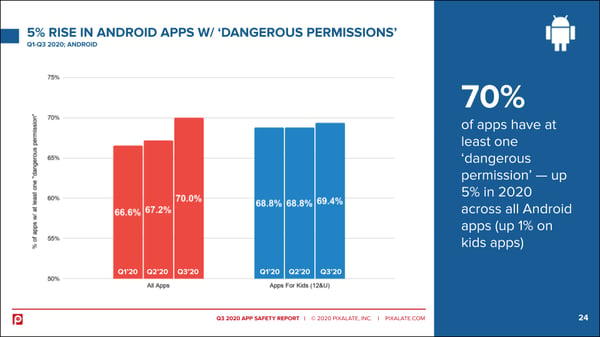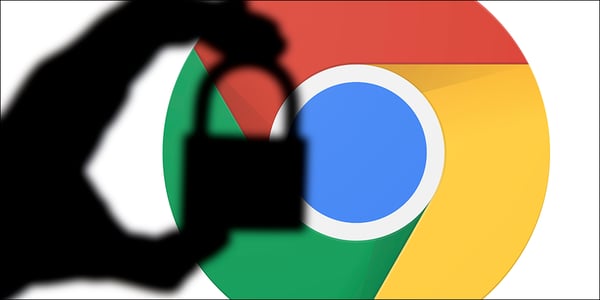
This week's review of ad fraud and quality in the digital advertising space.

This blog examines the number of apps available on the Google Play Store that request any "dangerous permission" (as defined by Google), such as precise location access, access to the phone's camera or microphone, and more.
As of the end of Q320, 70% (over 2.3 million) of apps on the Play Store request at least one dangerous permission, up 5% (from 66.6%) in Q120.

According to eMarketer estimates, "advertisers spent an additional $1.16 billion on programmatic CTV video ads in 2020 compared with 2019, and incremental spending in 2021 will increase to $2.37 billion." Advertisers are expected to spend $6.7 billion on programmatic CTV in 2021.

Adweek reports that "The latest investigation into Google’s proposed web browser changes exposes the trade-offs lawmakers concerned with consumer protection and regulators looking to preserve competition will have to ponder." This investigation comes from the U.K.'s Competition and Markets Authority look into Google’s Privacy Sandbox, Google's "proposals for post-cookie online advertising in Google Chrome," wrote Adweek.

AdExchanger reported that as of January 14, 2021, "all campaigns on YouTube are required to enable Ads Data Hub linking in order to be eligible for third-party measurement." AdExchanger added: "According to Google, this adds an extra layer of privacy protection for users."

guteksk7 / Shutterstock.com
"Back in November, some developers raised concerns due to a change in macOS Big Sur, which allowed Apple apps to bypass firewall filters in any situation," reported 9to5mac. "Since this could lead to security and privacy breaches, Apple has removed this list of exceptions from macOS Big Sur 11.2," 9to5mac added.
*By entering your email address and clicking Subscribe, you are agreeing to our Terms of Use and Privacy Policy.
These Stories on Weekly Recaps
*By entering your email address and clicking Subscribe, you are agreeing to our Terms of Use and Privacy Policy.

Disclaimer: The content of this page reflects Pixalate’s opinions with respect to the factors that Pixalate believes can be useful to the digital media industry. Any proprietary data shared is grounded in Pixalate’s proprietary technology and analytics, which Pixalate is continuously evaluating and updating. Any references to outside sources should not be construed as endorsements. Pixalate’s opinions are just that - opinion, not facts or guarantees.
Per the MRC, “'Fraud' is not intended to represent fraud as defined in various laws, statutes and ordinances or as conventionally used in U.S. Court or other legal proceedings, but rather a custom definition strictly for advertising measurement purposes. Also per the MRC, “‘Invalid Traffic’ is defined generally as traffic that does not meet certain ad serving quality or completeness criteria, or otherwise does not represent legitimate ad traffic that should be included in measurement counts. Among the reasons why ad traffic may be deemed invalid is it is a result of non-human traffic (spiders, bots, etc.), or activity designed to produce fraudulent traffic.”

